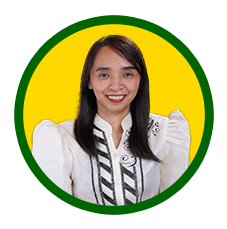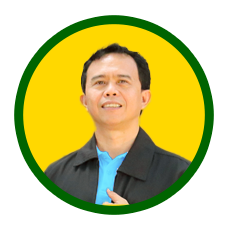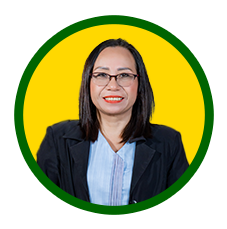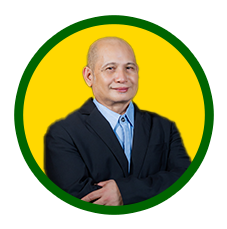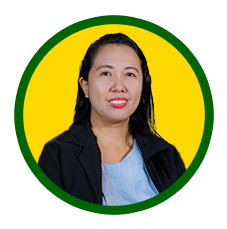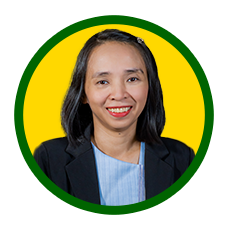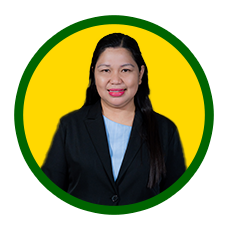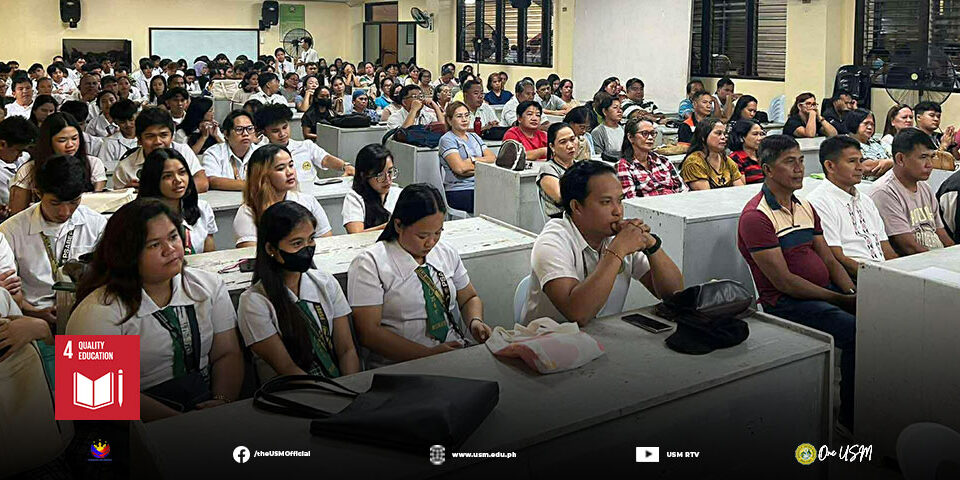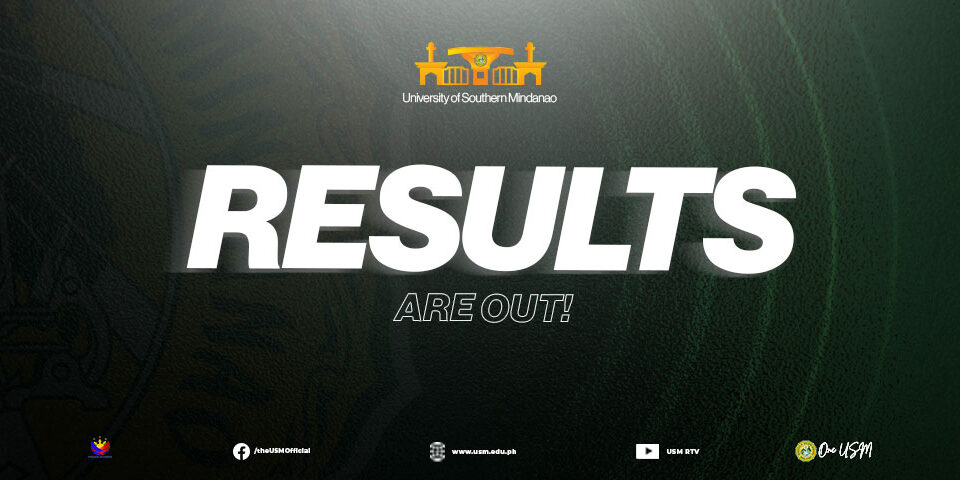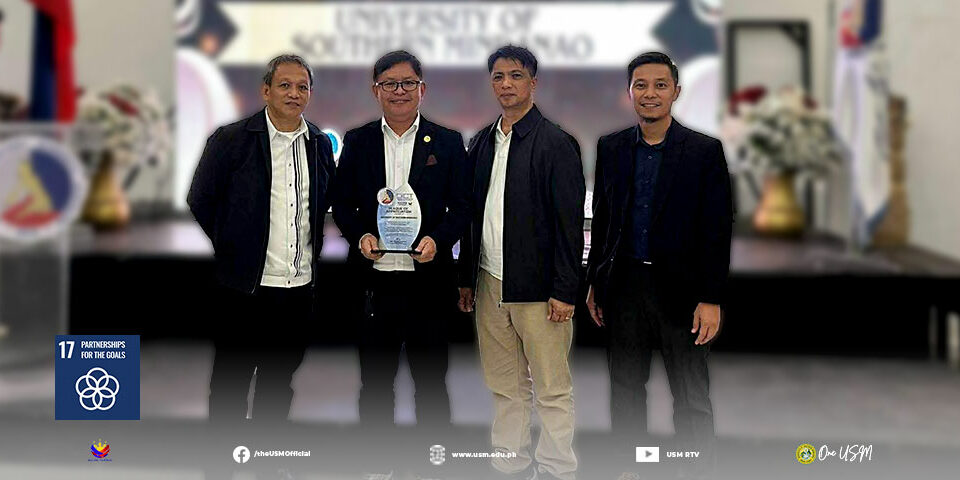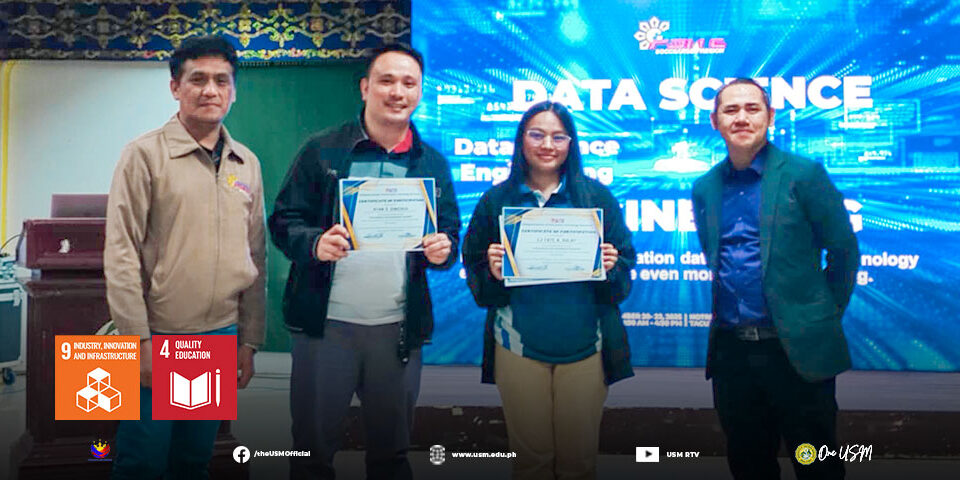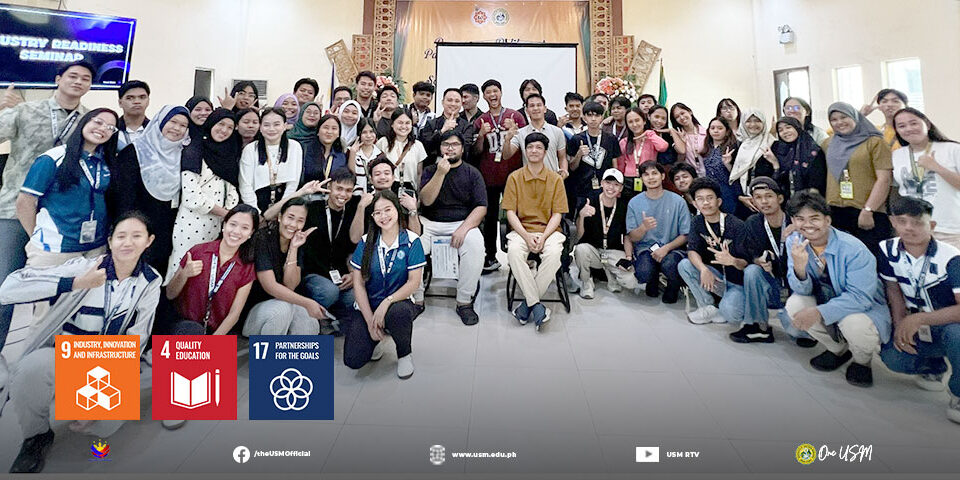
The college has evolved from a Department of Agricultural Engineering into a College of Engineering when the Mindanao Institute of Technology was converted into a University on March 13, 1978. The Bachelor of Science in Civil Engineering (BSCE) was offered in 1983 followed by the Bachelor of Science in Computer Science (BSCS), Bachelor of Science in Computer Engineering (BSCpE), and Bachelor of Science in Information Management (BSIM) were offered in 1997 and 2003, respectively. The college was renamed as College of Engineering and Computing (CENCOM) during the deanship of Dr. Rommel G. Tangonan.
The pioneering program was the Bachelor of Science in Agricultural Engineering (BSAE). It was approved in principle during the 42nd meeting of the Board of Trustees of the then Mindanao Institute of Technology held at Jade Vine Hotel, Manila on September 23, 1964. The first batch of the BSAE started in the School Year 1968-1969 pending its approval on December 13, 1968 during the 55th meeting of the BOT at Sunya Aristocrat Restaurant, Manila.
The Department of Agricultural Engineering was initially headed by Engineer Edilberto N. dela Torre, an electrical mechanical engineer in 1968. Due to his untimely death, the leadership of the department was passed on to Engr. Alfredo C. Pepito who served as chairman from April 1969 to May 1970. Engr. Benjamin F. Fortinez assumed the leadership of the department when Engr. Pepito went on study leave on June 1970. When MIT became a university in 1978, Engr. Fortinez became its first Dean of the College of Engineering with the following successors: Dr. Eustaquio Bayotlang (1988-1950); Dr. Rufino Garzon (1995-1998); Dr. Rommel G. Tangonan (1998-2009); Dr. Herminigildo Gutierrez (2009-2010). Dr. Nelson M. Belgira assumed deanship on November 2, 2010 until his retirement on July 31, 2018 serving the college for two terms. He was then succeeded by Prof. Alberto Arellano on August 2, 2018 to date.
The college is committed to produce graduates of higher education in engineering and information technology in this part of the country. Presently, the college has six degree programs namely: BSABE, BSCE, BSCpE, BSECE, BSCS, BS InfoSys and BLIS from 1973 up to the present. The college has already produced leaders and professionals holding positions in both government and private agencies as chief executive officers, middle managers, and even CEOs of their own businesses. It has also produced a number of academicians, instructors, professors, vice presidents, deans in private and government institutions and the latest of whom are presidents of ASSCAT in Agusan del Sur, Dr. Virgilio Garcia and the incumbent USM President Dr. Francisco Gil N. Garcia. Other graduates of the college work as technicians and/or specialists abroad.
Looking at the trend of the college’s licensure passers in both its CE and AE programs, a very notable improvement in the result is very possible because from 29% in 2010, it rose to 40% in 2011 and even jumped to 44.83 in 2012. These results are credited to the concerted efforts of the university administrators and the professors who work collaboratively to achieve the following AACUP Accreditation levels: BS Agricultural Engineering (level III), BS Civil Engineering (level II), BS Computer Science (level I), BS Computer Engineering and BS EcE recently passed the prelim survey and the BS Information Systems, now candidate for level I.
Deans Since 1978
| Name | Year |
|---|---|
| Engr. Benjamin F. Fortinez Sr. | 1978 - May 1988 |
| Dr. Eutaquio Bayotlang | June 1988 - May 1995 |
| Dr. Rufino S. Garzon | June 1995 - December 1998 |
| Dr. Rommel G. Tangonan | December 1998 - May 2009 |
| Dr. Herminigildo Gutierrez | June 2009 - October 2010 |
| Dr. Nelson M. Belgira | November 2, 2010 – July 31, 2018 |
| Engr. Alberto Arellano | August 1, 2018 - 2020 |
| Engr. Melecio A. Cordero, Jr. | 2020 - 2022 |
| Engr. Maricel G. Dayaday, DTE | 2022 - Present |
GOALS
The USM College of Engineering and Information Technology is committed to provide university education in agricultural engineering, civil engineering, and computing; meet the community’s need for trained manpower in engineering and various technical and managerial capabilities, and conduct researches and extension activities geared towards the amelioration of the region and the community at large.
OBJECTIVES
The College of Engineering and Information Technology aims to become one of the premier institutions of engineering and information and communications technology in the country within five years. To achieve this, it pushes to pursue the following courses of action:
- Improve the quality of its graduates specifically in terms of performance in licensure exams and employability;
- Increase books, other library acquisitions, and equipment; and improve student facilities to conform with national and international standards;
- Increase opportunities for trainings and graduate studies among faculty and staff members;
- Conduct more research, extension and income generation activities as well as publication of the results of such activities, all in support of the instruction function of the college; and
- Strive to attain optimal efficiency in expenditure and the conduct of other administrative activities of the college.
The institution of agricultural engineering program of USM is one of the program focus of UNESCO in the Mindanao Institute of Technology(MIT) in response to the growing need of professionals to help accelerate rural development. As such, several UNESCO experts have helped in the conceptualization and eventual implementation of the program. However, so as to meet the demands of the ever-changing digital and engineering world, two of the CEIT courses have been changed from BS Agricultural Engineering to BS in Agricultural and Biosystems Engineering while the Bachelor of Electronics and Communication Enginnering is shortened to Bachelor of Science in Electronics Engineering (BSEE).
The BSABE program is designed to produce graduates who possess knowledge, skills and attitudes in the application of engineering science and design process and systems involved in the sustainable production, post production, and biological materials; the efficient utilization, conservation, and management of natural and renewable resources; and development of climate change mitigation measures, in order to enhance human health and harmony with the environment. Agricultural and Biosystems consist of crops, poultry, livestock, fisheries and aquaculture resources and climate.
The graduates of BSABE are expected to apply engineering sciences and designs to identify, analyze and create solution for problems concerning lang development; irrigation and drainage including dams, farm roads, and bridges; AB production machinery; new and renewable energy; AB building and structure; postharvest and processing technologies; climate change, and natural resources, environmental and waste management.
Majors/Specialization
- *AB Land and Water Resource Engineering
- *AB Machinery and Power Engineering
- *AB Process Engineering
- *AB Structures and Environment Engineering
Program Objectives
The University of Southern Mindanao Agricultural Engineering program aims to:
- To produce agricultural engineers that can demonstrate competence in methods of analysis involving use of mathematics, fundamental physical and biological sciences, engineering sciences, and computing needed for the practice of biological systems engineering in food, fiber, energy, and environmental companies and agencies.
- To train students to develop skills necessary in the design process including the ability to think creatively, to formulate problem statements, to communicate effectively, to synthesize information, and to evaluate and implement problem solutions.
- To prepare the students in addressing issues of ethics safety, professionalism, cultural diversity, globalization, and environmental impacts in engineering practice.
- To produce professionals that can demonstrate continuous professional and technical growth, with practical experience, so as to be licensed as a professional engineer or achieve that level of expertise.
- To produce graduates who can demonstrate the ability to:
-
- be a successful leader of multi-disciplinary teams,
- efficiently manage multi simultaneous project, and work collaboratively,
- implement multi-disciplinary systems-based solutions,
- apply innovative solutions to problems through the use of new methods and technologies,
- contribute to the business success of their employee, and
- build community.
Curriculum
Based on CMO No. 94 s. 2017, CMO No. 20 s. 2013, and CMO 39 s. 2021,
BOR Res. No. 102 s. 2022 and 99-D s. 2024
Effective 1st Semester AY 2024-2025
| First Year - First Semester | |||
| Course Code | Course Title | Unit Credit | Pre-requisite |
| ABE 01 | Introduction to Agricultural and BioSystems Engineering | 1 | None |
| EngMath 01 | Fundamentals of Mathematics for Engineers | 3 | None |
| EngChem | Chemistry for Engineers | 4 | None |
| EngPhys 01 Lec | Physics for Engineers | 3 | None |
| EngPhys 01 Lab | Physics for Engineers | 1 | None |
| GE 01 | Understanding the Self | 3 | None |
| GE 04 | Mathematics in the Modern World | 3 | None |
| PE 01 | PATHFit 1: Movement Competency Training | 2 | None |
| NSTP 01 | Civic Welfare Training Service l/Reserved Officers Training Corps1 | 3 | None |
| First Year - Second Semester | |||
| Course Code | Course Title | Unit Credit | Pre-requisite |
| EngMath 02 | Calculus 1 | 3 | EngMath 01,GE 04 |
| EngSci 03 | Plane and Topographic Surveying | 3 | EngMath 01, EngPhys 01 lec, GE 04 |
| EngSci 02 | Computer Aided Drafting | 1 | |
| ABE EEng 01 | Elements of Electronics and Electrical Engineering | 3 | EngPhys 01 lec, Engphys 01 lab |
| AbeCropSci 01 | Principles of Crop Science | 3 | None |
| SoilSci 01 | Principles of Soil Science | 3 | None |
| GE 07 | Science, Technology and Society | 3 | None |
| PE 02 | PATHFit 2: Exercise-based Fitness Activities | 2 | PE 01 |
| NSTP 02 | Civic Welfare Training Service/Reserved Officers Training Corps 2 | 3 | NSTP 01 |
| Second Year - First Semester | |||
| Course Code | Course Title | Unit Credit | Pre-requisite |
| EngMath 03 | Calculus 2 | 3 | EngMath 02 |
| ABE Meng 01 | Thermodynamics and Heater Transfer | 5 | EngPhys 01 lec, EngPhys 01 lab, EngMath 02 |
| ABE Engsci 01 | Statistics of Rigid Bodies(Engineering Mechanics 1) | 3 | EngPhys 01 lec, EngMath 02 |
| ABE Ansci 01 | Principles of Animal Science | 3 | None |
| GE 05 | Purposive Communication | 3 | None |
| GE 08 | Ethics | 3 | None |
| GEAH 01 | Great Books | 3 | None |
| PE 03 | PATHFit 3: Menu of Dance, Sports, Martial Arts, Group Exercises, Outdoor and Adventure Activities | 2 | PE 02 |
| Second Year - Second Semester | |||
| Course Code | Course Title | Unit Credit | Pre-requisite |
| EngMath 04 | Differrential Equations | 3 | EngMath 03 |
| ABE Engsci 02 | Fluid Mechanics | 3 | ABE EngSci 01 |
| ABE Engsci 03 | Dynamics of Rigid Bodies(Engineering Mechanics 2) | 3 | ABE EngSci 01 |
| ABE 04 | Materials and Process for Agricultural anf Biosystems Engineering | 3 | EngChem 01, EngSci 02, ABE Engsci 01 |
| GE 09 | The life and Works of Rizal | 3 | None |
| GEMST 01 | Environmental Science | 3 | None |
| PE 04 | PATHFit 4: Menu of Dance, Sports, Martial Arts, Group Exercise, Outdoor and Adventure Activities | 2 | PE 02 |
| Third Year - First Semester | |||
| Course Code | Course Title | Unit Credit | Pre-requisite |
| EngMath 05 | Engineering Data Analaysis | 3 | EngMath 02 |
| EngSci 19 | Engineering Economy | 3 | EngMath 03 |
| ABE EngSci 04 | Mechanics of Deformable Bodies (Strength of Materials) | 3 | ABE EngSci 03 |
| ABE 02 | Agricultural and Biosystems Engineering and Related Laws, Specifications and Professional Ethics | 1 | ABE 01 |
| ABE 05 | Hydrometeorology | 3 | EngMath 03, ABE Engsci 02 |
| ABE 09 | Agricultural Biosystems Power Engineering | 3 | EngMath 03, ABE Meng 01 |
| ABE 13 | Properties of Agriculural and Biosystems Materials | 3 | ABE MEng 01 ABE 04 |
| GE 02 | Readings in Philippine History | 3 | None |
| GEMST 02 | People and Earth's Ecosystem | 3 | None |
| Third Year - Second Semester | |||
| Course Code | Course Title | Unit Credit | Pre-requisite |
| EngSci 17 | Technopreneurship | 3 | EngSci 19 |
| ABE 03 | Computer Applications in Agricultural and Biosystems Engineering | 3 | EngMath 02, ABE 05 |
| ABE 17 | Agricultural and BioSystems Structures Engineering | 3 | ABE 04, ABE EngSci 04 |
| ABE 06 | Irrigation and Drainage Engineering | 3 | EngSci 03, ABE CropSci 01, SoilSci 02, ABE 05 |
| ABE 10 | Agricultural and BioSystems Machinery and mechanization | 3 | ABE CropSci 01, SoilSci 02, ABE AnSci 01, ABE 09 |
| ABE 14 | Agricultural and Biosystems Products Processing and Storage | 3 | ABE CropSci 01, ABE AnSci 01, ABE 13 |
| ABE 20 | AB Electrification and Control Systems | 3 | ABE EEng 01, EngMath 04 |
| ABE UT 01 | Undergraduate Thesis A | 2 | EngMath 05, ABE 05, ABE 09, ABE 13 |
| Third Year - Summer | |||
| Course Code | Course Title | Unit Credit | Pre-requisite |
| ABE OJT | Industry Immersion Program (240 hours) | 3 | ABE UT 01 |
| Fourth Year - First Semester | |||
| Course Code | Course Title | Unit Credit | Pre-requisite |
| GE 03 | The Contemporary World | 3 | None |
| GE 06 | Art Appreciation | 3 | None |
| ABE 07 | Aquaculture Engineering | 3 | ABE 06 |
| ABE 11 | Machine Design for Agriculture and BioSystems Production | 3 | ABE 10 |
| ABE 15 | Food Process Engineering | 3 | ABE 14 |
| ABE 18 | Plant and Livestock Systems and Environmental Control Engineering | 3 | ABE CropSci 01, SoilSci 02, ABE AnSci 01, ABE 17, ABE 20 |
| ABE 21 | Undergraduate Seminar | 1 | ABE OJT |
| ABE UT 02 | Undergraduate Thesis B | 2 | ABE UT 01 |
| Fourth Year - Second Semester | |||
| Course Code | Course Title | Unit Credit | Pre-requisite |
| ABE 08 | Land and Water Conversation Engineering | 3 | ABE 06 |
| ABE 12 | Renewable Energy for AB Applications | 3 | ABE 10 |
| ABE 16 | Design and Management of AB Processing System | 3 | ABE 15 |
| ABE 19 | AB Waste Manangement Engineering | 3 | ABE 18 |
| ABE CEP 01 | CompetencyEnhancement Program (LEAE) | 3 | Consent of Instuctor |
| ABE UT 01 | Undergraduate Thesis C | 2 | Abe UT 02 |
BSCpE aims to develop graduates of the program to have a strong background in mathematics, natural physical and allied sciences. also, it contains complementary courses such as general education courses to ensure that the graduates are articulate in the nature of their role and impact of their work in the society and environment. The BSCpE curriculum is designed to guarantee breadth of the knowledge of the discipline through a set of professional courses and ensure depth and focus in certain disciplines through cognate/tracks. also, it develops student’s ability to use modern tools necessary to solve problems in the field of computer engineering.
Objectives
This program holds the ability to design a system, component, or process to meet desired needs within realistic constraints such as economic, environmental, social, political. ethical health and safety, manufacturability, and sustainability, in accordance with the required standards
The BS Computer Science program includes the study of computing concepts and theories, algorithmic foundations and new developments in computing. The program prepares students to design and create algorithmically complex software and develop new and effective algorithms for solving computing problems.
The program also includes the study of the standards and practices in Software Engineering. It prepares students to acquire skills and disciplines required for designing, writing and modifying software components, modules and applications that comprise software solutions (CMO No. 25 S. 2015)
Program Objectives
The Computer Science program aims:
- To develop students to become versatile, competitive, responsible individuals so that they may be able to address issues affecting the economy, safety, globalization and ethics.
- To train students in acquiring technical skills and knowledge on the concepts of theories; algorithm foundations, abstract and analytical processes, trends in ICT and other computer science related areas;
- To produce IT professionals who are:
- proficient in designing, developing, and implementing computer based solutions;
- able to apply fundamental concepts as problem solvers
- able to recognize and apply technical standards and interoperability; and
- able to practice their profession with high regard on the quality standards and ethical values
- To mold the students to become socially aware by involving them in research and extension activities as integration knowledge learned from the different areas of computer science.
Curriculum
Based on CMO No. 25s. 2015, CMO No. 20 s. 2013, and CMO 39 s. 2021,
BOR Res. No. 102 s. 2022 and 99-D s. 2024
Effective 1st Semester AY 2024-2025
| First Year - First Semester | |||
| Course Code | Course Title | Unit Credit | Pre-requisite |
| GEMST 03 | Living in the IT Era | 3 | None |
| CS 01 | Fundamentals of Programming | 3 | None |
| ICT 01 | Introduction to Computing | 3 | None |
| CS 02 | Discrete Structures 1 | 3 | None |
| CS Math 01 | Calculus 1 | 3 | None |
| PE 01 | PATHFit 1: Movement Competency Training | 2 | None |
| NSTP 01 | CIvic Welfare Training Service 1/Reserved Officers Training Corps 1 | 3 | None |
| First Year - Second Semester | |||
| Course Code | Course Title | Unit Credit | Pre-requisite |
| GE 01 | Understanding the Self | 3 | None |
| GE 04 | Mathematics in the Modern World | 3 | None |
| CS 03 | Discrete Structures 2 | 3 | ICT 01, CS 02 |
| CS 04 | Intermediate Programming | 3 | CS 01 |
| ICT 02 | Data Structures and Algorithms | 3 | CS 01, CS 02 |
| ICT 03 | Information management | 3 | ICT 01 |
| PE 02 | PATHFit 2: Exercise-based Fitness Activities | 2 | PE 01 |
| NSTP 02 | Civic Welfare Training Service 2/ Reserved Officers Training Corps 2 | 3 | NSTP 01 |
| Second Year - First Semester | |||
| Course Code | Course Title | Unit Credit | Pre-requisite |
| GE 07 | Science, Technology and Society | 3 | None |
| GESSP 01 | Society and Culture | 3 | None |
| ICT 01 | Database Management Systems | 3 | ICT 03, CS 04 |
| CS 05 | Algorithms and Complexity | 3 | CS 03, ICT 02 |
| CS 06 | Object-Oriented Programming | 3 | CS 03, CS 04 |
| PE 03 | PATHFit 3: Menu of Dance, Sports, Martial Arts, Group Exercises, Outdoor and Adventure Activities | 2 | PE 02 |
| Second Year - Second Semester | |||
| Course Code | Course Title | Unit Credit | Pre-requisite |
| GE 02 | Reading in Philippine History | 3 | None |
| GE 05 | Purposive Communication | 3 | None |
| GE 06 | Art Appreciation | 3 | None |
| ICT 04 | Human Computer Interaction | 3 | CS 06 |
| CS 07 | Architecture and Organization | 3 | CS 05 |
| CS 08 | Networks and Communication | 3 | CS 06, ICT 06 |
| CS Elec 01 | Computational Science | 3 | CS Math 01, CS 05 |
| PE 04 | PATHFit 4: Menu of Dance, Sports, Martial Arts, Group Exercises, Outdoor and Adventure Activities | 2 | PE 02 |
| Third Year - First Semester | |||
| Course Code | Course Title | Unit Credit | Pre-requisite |
| GE 09 | The Life and Works of Rizal | 3 | None |
| CS 09 | Software Engineering l | 3 | ICT 04, CS 06 |
| ICT 05 | Applications Development and Emerging Technologies | 3 | ICT 04, CS 06 |
| CS 13 | Automata Theory and Formal Languages | 3 | ICT Elec 01 |
| CS 10 | Operating System | 3 | CS 07, CS 08 |
| CS 11 | Programming Languages | 3 | CS 06 |
| CS 12 | Social Issues and Professional Practice | 3 | None |
| Third Year - Second Semester | |||
| Course Code | Course Title | Unit Credit | Pre-requisite |
| GE 08 | Ethics | 3 | None |
| CS 14 | Software Engineering ll | 3 | CS 09 |
| CS 17 | Introduction to Artificial Intelligence | 3 | CS 13 |
| CS 15 | Information Assurance and Security | 3 | CS 12 |
| CS 16 | Research in Computer Science | 3 | None |
| CS 18 | Internet of Things | 3 | ICT 05 |
| CS Elec 02 | Graphics and Visual Computing | 3 | ICT 04, CS 10 |
| Third Year - Summer | |||
| Course Code | Course Title | Unit Credit | Pre-requisite |
| CS OJT 01 | Practicum(In-Campus/Off-Campus | 3 | All Previous CS Subjects and 75% of the Total Number of Units |
| Fourth Year - First Semester | |||
| Course Code | Course Title | Unit Credit | Pre-requisite |
| GESSP 4 | The Entrepreneurial Mind | 3 | None |
| CS UT 01 | CS Thesis Writing 1 | 3 | CS OJT 01 |
| CS 19 | Data Mining and Warehousing | 3 | CS 14 |
| ICT 07 | Web Design and Development | 3 | CS 14, CS 15, ICT 06 |
| CS 20 | Interpreter/Compiler | 3 | CS 13 |
| Fourth Year - Second Semester | |||
| Course Code | Course Title | Unit Credit | Pre-requisite |
| GE 03 | The Contemporary World | 3 | None |
| CS UT 02 | CS Thesis Writing 2 | 3 | CS UT 01 |
| CS 21 | Free and Open-Source Software | 3 | CS 10 |
| CS Elec 03 | Intelligent Systems | 3 | CS 17 |
The BS in Electronics and Communications Engineering programs aims to train the students to integrate available and emerging technologies which focuses on the conceptualization, design and development of electronic, computer and communication products, system, services and processes.
Program Objectives
The objectives of the program are:
- To provide the student with an education in the fundamentals of electronics engineering that will allow him to be immediately competitive in the industry or in graduate work while providing him the best opportunity for achieving his full potential during his lifetime;
- To develop a sense of professional responsibility and social awareness; and
- To provide practical applications as evidenced by laboratory, design, project study, computer exercises and practicum courses which would help the student to work well whether independently or as part of a group.
The BS Information System program includes the study of application and effect of information technology to organizations. Graduates of the program should be able to implement an information system, which considers complex technological and organizational factors affecting it. These include: components, tools, techniques, strategies, methodologies, etc.
Graduates are able to help an organization determine how information and technology-enabled business processes can be used as strategic tool to achieve a competitive advantage. As a result, IS professionals require a sound understanding of organizational principles and practices so that they can serve as effective bridges between the technical and management/users communities within an organization. In so doing, they ensure that the organization has the information and the systems it needs to support its operations. (CMO No.25 S. 2015)
Program Objectives
The Information Systems program aims:
- To develop students to become versatile, competitive and responsible graduates in the field of information technology.
- To prepare students to become proficient in design and implementation of solutions that integrate information technology with business processes and management. To train students to acquire competencies on technical understanding specifically in:
- information abstraction, representation and organization;
- computing architectures and delivery systems;
- concepts of information and systems distribution;
- information management and system development; and
- computing tools in knowledge application
- To develop students in acquiring skills on personal discipline, critical thinking and ethical thinking so that they may become productive and competitive human resources;
- To encourage the faculty and students in conducting research, community involvement and extension services as to make them aware of their social responsibility.
Curriculum
Based on CMO No. 25 s. 2017, CMO No. 20 s. 2013, and CMO 39 s. 2021,
BOR Res. No. 102 s. 2022 and 99-D s. 2024
Effective 1st Semester AY 2024-2025
| First Year - First Semester | |||
| Course Code | Course Title | Unit Credit | Pre-requisite |
| GE 09 | The Life and Works of Rizal | 3 | None |
| GEMST 03 | Living in the IT Era | 3 | None |
| InfoSys 01 | Fundamentals of Information Systems | 3 | None |
| InfoSys 02 | Computer Programming l | 3 | None |
| ICT 01 | Introduction to Computing | 3 | None |
| PE 01 | PATHFit 1: Movement Competancy Training | 2 | None |
| NSTP 01 | Civic Welfare Training Service/Reserved Officers Training Corps 1 | 3 | None |
| First Year - Second Semester | |||
| Course Code | Course Title | Unit Credit | Pre-requisite |
| GE 01 | Understanding The Self | 3 | None |
| GE 04 | Mathematics in the Modern World | 3 | None |
| InfoSys BaM 01 | Organization and Management Concepts | 3 | None |
| InfoSys BaM 02 | Business Procsses Management | 3 | None |
| InfoSys 03 | Computer Programming ll | 3 | InfoSys 02, ICT 01 |
| InfoSys Elec 01 | IS Innovation & New Technologies | 3 | InfoSys 01, ICT 01 |
| PE 02 | PATHFit 2: Exercise-based Fitness Activities | 2 | PE 01 |
| NSTP 02 | Civic Welfare Training Service 2/Reserved Officer Training Corps 2 | 3 | NSTP 01 |
| Second Year - First Semester | |||
| Course Code | Course Title | Unit Credit | Pre-requisite |
| GE 07 | Science, Technology and Society | 3 | None |
| GESSP 01 | Society and Culture | 3 | None |
| InfoSys 04 | IT Infrastructure & Nework Technologies | 3 | InfoSys Elec 01 |
| ICT 03 | Information Management | 3 | InfoSys 03 |
| ICT 02 | Data Structures and Algorithms | 3 | InfoSys 03 |
| InfoSys FA 01 | Fundamental of Accounting | 3 | InfoSys BaM 01, InfoSys BaM 02 |
| PE 03 | PATHFit 3: Menu of Dance, Sports, Martial Arts, Group Exercises,Outdoor and Adventure Activities | 2 | PE 02 |
| Second Year - Second Semester | |||
| Course Code | Course Title | Unit Credit | Pre-requisite |
| GE 06 | Art Appreciation | 3 | None |
| InfoSys 05 | IS Project Management l | 3 | InfoSys BaM 01 |
| InfoSys 06 | IS Strategy, Management and Acquisition | 3 | InfoSys 04 |
| ICT 04 | Human Computer Interaction | 3 | InfoSys 03, ICT 02 |
| ICT 06 | Database Management Systems | 3 | ICT 03 |
| InfoSys Elec 02 | IT Security and Management | 3 | InfoSys 04 |
| AEC 19 | Financial Management | 3 | InfoSys FA 01 |
| PE 04 | PATHFit 4: Menu of Dance, Sports, Martial Arts, Group Exercises, Outdoor and Adventure Activities | 2 | PE 02 |
| Third Year - First Semester | |||
| Course Code | Course Title | Unit Credit | Pre-requisite |
| GE 02 | Reading of Philippine History | 3 | None |
| GE 05 | Purposive Communication | 3 | None |
| InfoSys BaM 03 | Evaluation of Business Performance | 3 | AEC 19 |
| InfoSys 07 | Professional Issues in Information System | 3 | InfoSys 06 |
| InfoSys 08 | System Analysis and Design l | 3 | InfoSys 05, ICT 04, ICT 06 |
| InfoSys 09 | Quantitive Methods | 3 | None |
| InfoSys Elec 03 | Enterprise Resource Planning | 3 | InfoSys 04, InfoSys 05 |
| ICT 05 | Applications Development and Emerging Technologies | 3 | ICT 04, InfoSys Elec 02 |
| Third Year - Second Semester | |||
| Course Code | Course Title | Unit Credit | Pre-requisite |
| GE 03 | The Contemporary World | 3 | None |
| GE 08 | Ethics | 3 | None |
| InfoSys UT 01 | Capstone Project 1 | 3 | InfoSys 08, InfoSys 09 |
| InfoSys 10 | Enterprise Architecture | 3 | InfoSys Elec 03 |
| InfoSys Elec 04 | IS Project Management ll | 3 | InfoSys BaM 03, InfoSys 08 |
| ICT 07 | Web Design and Development | 3 | InfoSys 08, ICT 05 |
| InfoSys 11 | Systems Analysis and Design ll | 3 | infoSys 08 |
| Fourth Year - First Semester | |||
| Course Code | Course Title | Unit Credit | Pre-requisite |
| GESSP 04 | The Entrepreneurial | 3 | None |
| InfoSys UT 02 | Capstone Project 2 | 3 | InfoSys UT 11 |
| InfoSys Elec 05 | Data Mining | 3 | InfoSys 11 |
| InfoSys 12 | Mobile Applications | 3 | InfoSys 11, ICT 07 |
| InfoSys 13 | Customer Relationship Management | 3 | InfoSys 11 |
| Fourth Year - Second Semester | |||
| Course Code | Course Title | Unit Credit | Pre-requisite |
| InfoSys OJT 01 | Practicum for Information System(In-Campus/Off-Campus | 6 | All Previous Courses |
Bachelor of Library and Information Science (BLIS) is an interdisciplinary field that applies the practices, perspectives and tool of management, information technology, education and other areas to libraries/ information centers/ learning resource centers: its collection, dissemination and use. BLIS curriculum is designed to equip the professional with the composite knowledge, skills and tools to enable him/her to be responsive to the changing information needs of society.
Curriculum
Based on CMO No. 24 s. 2013, CMO No. 20 s. 2013, and CMO 39 s. 2021,
BOR Res. No. 102 s. 2022 and 99-D s. 2024
Effective 1st Semester AY 2024-2025
| First Year - First Semester | |||
| Course Code | Course Title | Unit Credit | Pre-requisite |
| GE 01 | Understanding the Self | 3 | None |
| LIS ICT 01 | Programming Fundamentals | 3 | None |
| GE 04 | Mathematics in the Modern World | 3 | None |
| GE 05 | Purposive Communication | 3 | None |
| LIS 01 | Introduction to Library and Information Science | 3 | None |
| PE 01 | PATHFit 1: Movement Competency Training | 2 | None |
| NSTP 01 | Civic Welfare Training Service 1/Reserved Officers Training Corps 1 | 3 | None |
| First Year - Second Semester | |||
| Course Code | Course Title | Unit Credit | Pre-requisite |
| GE 07 | Science, Technology and Society | 3 | None |
| LIS 02 | Information Literacy | 3 | LIS 01 |
| LIS 03 | Collection Management of Information Resources | 3 | LIS 01 |
| LIS 04 | Organization of Information Resources l | 3 | LIS 01 |
| LIS ICT 02 | Database Design fo Libraries | 3 | LIS ICT 01 |
| PE 02 | PATHFit 2: Exercise-based Fitness Activities | 2 | PE 01 |
| NSTP 02 | Civic Welfare Training Service 2/ Resreved Officers Training Corps 2 | 3 | NSTP 01 |
| Second Year - First Semester | |||
| Course Code | Course Title | Unit Credit | Pre-requisite |
| GE 03 | The Contemporary World | 3 | None |
| GE 08 | Ethics | 3 | None |
| LIS ICT 03 | Information Processing and Handling in Libraries and Information Centers | 3 | LIS ICT 02 |
| LIS Elec 03 | Artificial Intelligence(AI) Application in Libraries | 3 | LIS ICT 01 |
| LIS 05 | Organization of Information Resources ll | 3 | LIS 04 |
| SpT 01 | School / Academic Librarianship | 3 | LIS 01 |
| PE 03 | PATHFit 3: Menu of Dance, Sports, Martial Arts, Group Exercises, Outdoor and Adventure Activities | 2 | PE 02 |
| Second Year - Second Semester | |||
| Course Code | Course Title | Unit Credit | Pre-requisite |
| GEMST 03 | Living in the IT Era | 3 | None |
| LIS 06 | Indexing and Abstracting | 3 | LIS 05 |
| LIS 07 | Information Resources and Service l | 3 | LIS 03 |
| LIS 08 | Management of Libraries and Information Centers | 3 | LIS 03 |
| GE 02 | Reading in Philippine | 3 | None |
| LIS ICT 04 | Systems Analysis and Design in Libraries and Information Centers | 3 | LIS ICT 01 |
| PE 04 | PATHFit 4: Menu of Dance, Sports, Martial Arts, Group Exercises, Outdoor and Adventure Activities | 2 | PE 02 |
| Third Year - First Semester | |||
| Course Code | Course Title | Unit Credit | Pre-requisite |
| GESSP 03 | Gender and Society | 3 | None |
| LIS ICT 05 | Digital Libraries and Resources | 3 | LIS ICT 04 |
| LIS Elec 02 | Introduction to Data Analytics | 3 | LIS ICT 01 |
| LIS 09 | Information Resources and Service ll | 3 | LIS 07 |
| LIS 10 | Library Materials for Children and Young Adults | 3 | LIS 08 |
| LIS 11 | Introduction to Records Management and Archives | 3 | LIS 06 |
| SpT 02 | Special/Public Librarianship | 3 | SpT 01 |
| LIS 12 | Research Methods in Library and Information Science | 3 | None |
| Third Year - Second Semester | |||
| Course Code | Course Title | Unit Credit | Pre-requisite |
| GE 09 | The Life and Works of Rizal | 3 | None |
| LIS UT 01 | Thesis Writing(Outline) | 3 | LIS 12 |
| SpT 03 | Preservation of Information Resources | 3 | SpT 02 |
| SpT 04 | Philosophies and Priciples of Teaching | 3 | SpT 02 |
| LIS ICT 06 | Web Technologies in Libraries and Information Centers | 3 | LIS ICT 05 |
| LIS Elec 03 | Introducttion to Data Mining | 3 | LIS ICT 04 |
| LIS Elec 04 | Disaster Risk Management for Libraries | 3 | LIS 06 |
| SpT 05 | Educational Technology | 3 | LIS 01, LIS ICT 01 |
| Fourth Year - First Semester | |||
| Course Code | Course Title | Unit Credit | Pre-requisite |
| GE 06 | Art Appreciation | 3 | None |
| GESSP 01 | Society and Culture | 3 | None |
| LIS UT 02 | Thesis Manuscript | 3 | LIS UT 01 |
| SpT 06 | Indigenous Knowledge and Multi-Culturalism | 3 | LIS 01 |
| SpT 07 | Foreign Language | 3 | LIS 01 |
| LIS Elec 05 | Marketing of Library and Information Services | 3 | LIS 08 |
| LIS Elec 06 | Library Entrepreneurship | 3 | None |
| LIS CEP 01 | Recent Trends and Issues in Library an Information Science | 3 | LIS 01, LIS 02, LIS 03, LIS 04, LIS 05, LIS 06, LIS 07, LIS 08, LIS 09 |
| Fourth Year - Second Semester | |||
| Course Code | Course Title | Unit Credit | Pre-requisite |
| LIS OJT 01 | Library Practice l(In-Campus) | 3 | All Previous Courses |
| LIS OJT 2 | Library Practice ll(Out-Campus) | 3 | All Previous Courses |
DEPARTMENT OF COMPUTING AND LIBRARY INFORMATION SCIENCE
DEPARTMENT OF CIVIL ENGINEERING
DEPARTMENT OF AGRICULTURAL AND BIOSYSTEMS ENGINEERING
DEPARTMENT OF ELECTRONICS ENGINEERING
DEPARTMENT OF COMPUTER ENGINEERING
News and Updates
USM-CEIT Conducts CEP Orientation
The College of Engineering and Information Technology (CEIT) of USM conducted a orientation for the Competency Enhancement Program (CEP) with the parents, guardians, students and faculty […]USM Posts High Passing Rate and National Topnotcher in ABELE
The University of Southern Mindanao (USM) posted an impressive overall passing rate of 82.61%, far above the national passing rate of 59.14%, in the Agricultural and Biosystems Engineering Licensure Examination, […]USM Receives Plaque of Appreciation from DICT
The Department of Information and Communications Technology (DICT) awarded a Plaque of Appreciation to the University of Southern Mindanao (USM) on December 5, 2025, at the […]USM Upskills for the Future: Faculty and Student Complete Data Science Training
The University of Southern Mindanao (USM) sent one of its faculty members and a student to attend the Data Science and Engineering Training held on November […]

